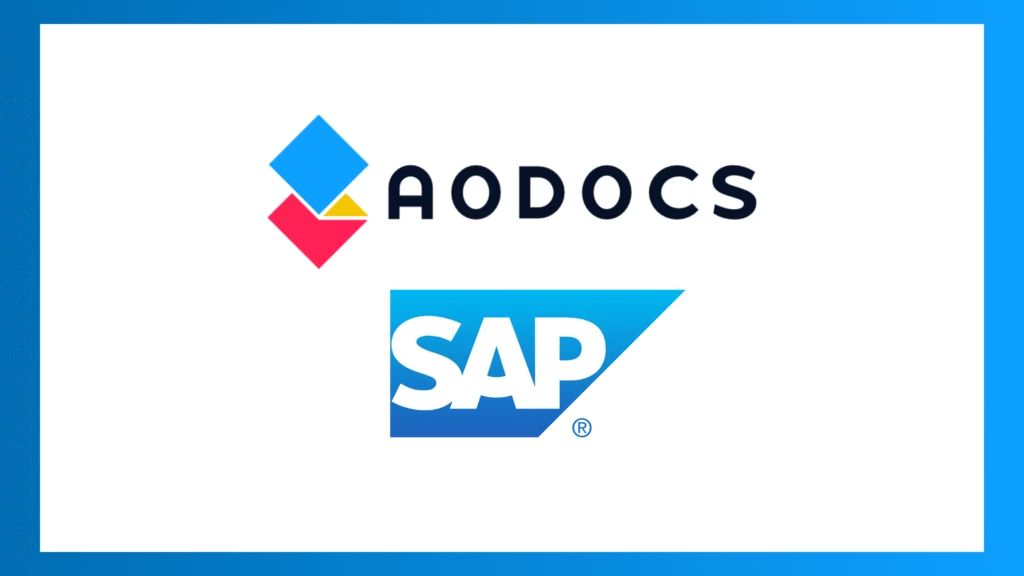What is a CLM?
Contract Lifecycle Management (CLM) solutions automate and streamline contract processes at every key stage: creation, negotiation, approval, execution, ongoing management as well as renewals. CLM solutions ease the management of client contracts, supplier contracts, M&A/corporate agreements or even employment contracts.
Law firms have been equipped with dedicated technology for a long time, but, until recently, in-house legal departments had been left on the sidelines with no proper technology to make their lives easier. But things are changing; a new generation of cloud CLM is coming and digital contracting is the future for in-house legal departments. With a cloud CLM, legal teams will be able to do more with less. Freed from tedious and repetitive work, they will be able to focus on business critical issues and become essential partners to the business.
What are the 10 key benefits of a Cloud CLM?
- Self-service contract creation. A cloud CLM allows anyone within your company (yes, anyone!) to generate transaction-ready contracts from pre-approved templates and clauses in just a few clicks. You can give your team as much liberty or control as you decide. This is particularly valuable when you are dealing with an important volume of similar contracts, such as NDAs, client agreements, or employment agreements.
- Templates and clauses libraries. With a cloud CLM, your legal team will be able to manage templates and pre-approved alternative clauses in one single place, with easy access to the entire history of changes. Moreover, a CLM will allow you to put in place a formal approval and publication process to ensure (i) all changes to a template or clause are properly approved and (ii) only the last approved version is published and available for use.
- Real-time collaboration for a faster contract turnaround. A cloud CLM will enable your legal team and sales team to collaborate more effectively on a contract, shortening the review and redline cycle. Real-time collaboration, invented by Google, is undoubtedly the best to ensure smooth collaboration.
- Versions control and comparison tool to ease and track contract negotiations. Negotiating a contract involves two or more parties and it can get tricky quickly, with version after version getting exchanged. A cloud CLM will allow you to properly store each version and to easily compare between any two. As a result, your team no longer needs to worry if you are working on the correct version or what your original proposition was on a clause.
- Safeguard of emails and attachments. Sometimes saving the contract (and its versions) is not enough to truly protect your company. You’ll also want to save all emails and attachments exchanged between the parties during the negotiation. A cloud CLM will integrate with your email provider (Gmail, Outlook, etc.) so you can seamlessly import emails and attachments and link them to the proper contract or client/supplier for safekeeping.
- Automated approvals triggered by predefined conditions (contract value, type of contract, etc.). A cloud CLM will give you the power to drastically reduce compliance risk by automating your contract approval process. This means there will be no more contracts going out for signature without the proper approval! From a simple NDA approval by a legal counsel to a complex MSA approval process involving legal, business and financial top executives, it will always be seamless for both the requester and the approvers (even if they are on the go!).
- Integration with E-signature tools. A proper cloud CLM will be tightly integrated with the main e-signature tools on the market (Adobe Sign, Docusign, etc.), enabling you to easily send contracts for e-signature, track that they have been properly signed and stored in the right place. You won’t discover after providing your services that your counterparty actually never signed the contract you sent them!
- One central contract repository. Setting up a central secured contract repository is the first essential step to properly managing your contracts. Your teams will no longer spend hours locating a signed contract (hoping it was not deleted if their colleague who handled the signature left the company). All of your contracts will be easily accessible in one single place, with complete control over the access rights so that only the right person can access the right contract.
- Post-signature contract management. A cloud CLM will allow you to set up alerts and email reminders to never forget a renewal date, payment date or other key event anymore.
- Analytics and reporting. With customizable dashboards and reports, a cloud CLM will allow you to have a global view on all your active contracts, highlighting the exact data you need. Reporting to top corporate executives or auditors will finally be effortless, no longer distracting your legal team from their actual job.
Some cloud CLM solutions focus only on the post-signature phase (contract repository, post signature management and analytics) while others will help you at every stage. But the best cloud CLM solutions should offer various options to adapt to your urgent needs while being able to evolve with you as you structure your business processes further.
From a simple, yet smart, cloud contract repository to a full cloud CLM solution, AODocs’ cutting edge technology can adapt to your current needs and grow with your business. Learn more here.



